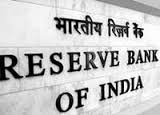Banks to issue Masala bonds, RBI opens currency markets
The Reserve Bank of India (RBI) has announced a raft of measures to boost investor participation and market liquidity in both the corporate bond and currency markets.
The central bank will allow commercial banks to issue rupee bonds in overseas markets — known as Masala bonds, both for their capital requirement and for financing infrastructure and affordable housing, according to an RBI statement.
“Accepting many of the recommendations of the Khan Committee to develop the corporate bond market, it has been decided to enhance the aggregate limit of partial credit enhancement (PCE) provided by banks, permit brokers in corporate bond repos, authorise the platform for repo in corporate bonds and encourage credit supply for large borrowers through market mechanism.”
It has been now been decided by the regulator that the aggregate PCE that will be provided by the financial system for a given bond issue will be increased from the present level of 20 per cent to 50 per cent of the bond issue size, subject to the PCE provided by any single bank not exceeding 20 per cent of the bond issue size and the extant exposure limits.
RBI said it has also been decided to seek suitable legal amendments to enable it to accept corporate bonds under the Liquidity adjustment Facility (LAF).
In order to ease access to the foreign exchange market for hedging in over the counter (OTC) and exchange-traded currency derivatives, the RBI has allowed entities exposed to exchange rate risk, both resident and non-resident, to undertake hedge transactions with simplified procedures, up to a limit of $30 million at any given time.
“The exposed person will be free to access any market (OTC or exchange) and use any of the permissible products at his discretion,” according to the RBI. Banks can also allow the customer an open position limit of up to $5 million. “This is intended to improve liquidity and depth in the foreign exchange market and the limit will be revised from time to time.” The RBI said since exposure of Indian entities to commodity price risks has been accentuated by the growing integration of the Indian economy and increasing volumes of cross border trade, a working group will be formed to review the guidelines for hedging of price risk by residents in the overseas markets.
To enhance participation in the corporate bond market, the RBI has decided that brokers authorised as market makers will be allowed to participate in the corporate bond repo market. “This measure is expected to meet their funding and securities requirement arising out of market making activities,” according to the RBI. Currently, banks, primary dealers, mutual funds, insurance companies are only allowed. In addition, foreign portfolio investors have been allowed to transact in corporate bonds directly without involving brokers.”
With an aim to reduce risk in banking sector, RBI has proposed to limit exposure of a bank to a business group to up to 25 per cent of its capital, down from the existing 55 per cent, the central banks said in a Draft Large Exposures (LE) Framework.
Kindly send reply or comments on this topic to [email protected]
Source:The Hindu




